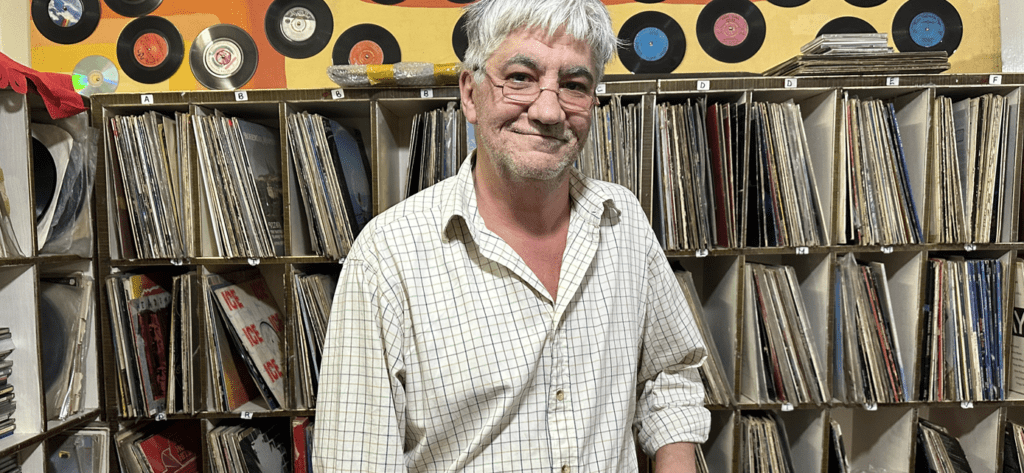Writer Peter Yeung meets Abdul Karim, the owner of a legendary Nairobi record store.
Mfangano Street in Nairobi’s Central Business District is in the throbbing, working-class heartbeat of Kenya’s capital city, a constant racket of honking matatu transport vans, packed no-frills restaurants and cheeky street traders who line the pavements.
But up a flight of stairs at the end of a nondescript corridor, Melodica Music Store is an oasis of calm.
That’s not to say this legendary record store, the oldest in Kenya and perhaps in the whole of east Africa, is quiet. Far from it: through the day, the vinyl shop is powered by a playlist of customers who come to listen to deep cuts of pan-African music and beyond, from Kenya’s upbeat benga pop to Arabic-influenced coastal taarab ballads, Congolese rumba and even more standard fare like Western classic rock and jazz.
“Everybody walks in here,” says Abdul Karim, the 62-year-old owner of Melodica, puffing on a cigarette as a rare version of Fela Kuti’s iconic 1973 album Gentleman, pressed in Kenya, spins in the back. “Old. Young. Africans. Indians. Europeans.”
Just like the mish-mash of musical genres on sale at Melodica – which, according to Karim, houses over 10,000 7-inch and 12-inch records, some CDs, cassette tapes, and even 1,000 magnetic master reels – the shop has a varied history.
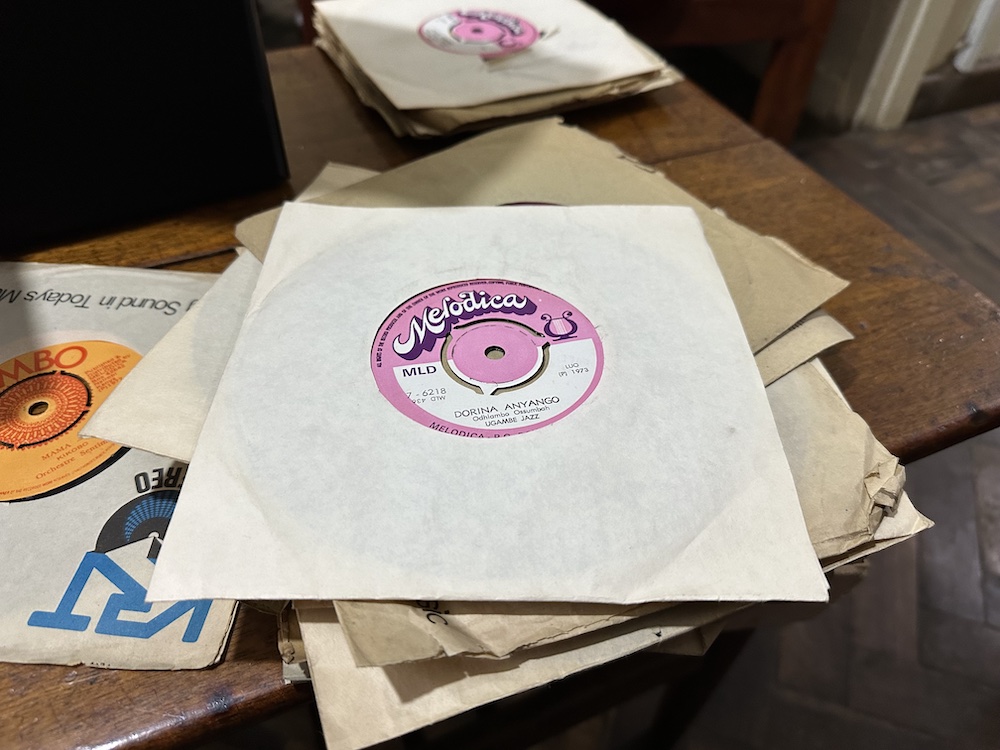

The store was initially founded by Karim’s dad Mzee Daudia in 1964 under the name Bonanza – in reference to the American cowboy TV series from the time – just a few blocks away on Nairobi’s Luthuli Avenue. The shop changed its name to Melodica and address to Tom Mboya Street in 1971, before its latest move in 2024.
When Bonanza opened, coming just a year after Kenya gained independence from its British colonists in 1963, it was a time of excitement, freedom, and an explosion of artistic experimentation. The store quickly became a Mecca for Kenyan musicians.
“Before, African musicians had to be careful and play very soft songs, to not seem a threat to the British,” explains Karim. “But when Kenya’s independence finally came, it meant that suddenly people could play African music in the streets. There was a sense of euphoria all around Nairobi. There was African pride in African music.”
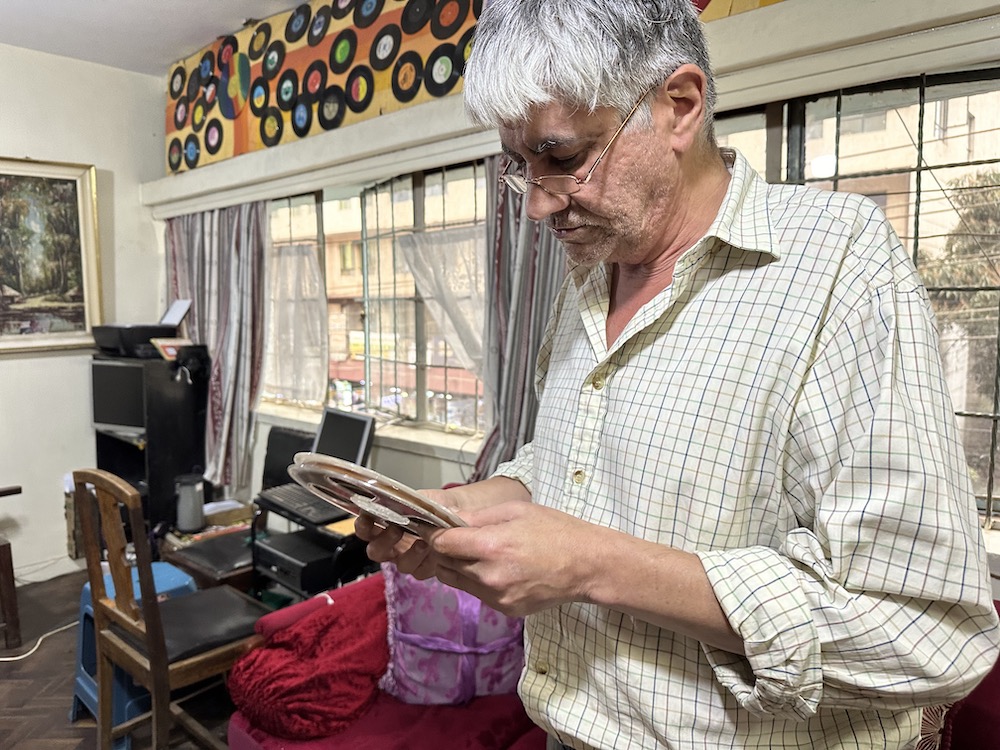

Karim, who was just a toddler when Bonanza opened, recalls that some of his earliest memories are of when his father would point speakers from the shop towards the streets to play music outwards and the masses would turn up, dancing.
“The street would get flooded with people,” he says. “It was so cool.”
At that time, record stores in Africa like Melodica weren’t just selling records. They were hubs for the entire music industry, often running their own recording studios and pressing plants, acting as music producers as well as distributors and retailers.
By the mid-1970s, established studios like EMI, Andrew Crawford and Polygram (which apparently pressed as much as 100,000 records a week) had set up shop in Nairobi, and the burgeoning scene drew musicians from across the continent, from Zambia to Zimbabwe, Malawi to Tanzania and the Democratic Republic of Congo.
But Melodica, which had its own label, Melodica Records, was known for supporting young artists who could otherwise not afford to record, nurturing their raw talent on a shoestring budget. It was not uncommon for songs to be recorded in just a single take and for the new record to be cut the very same day.
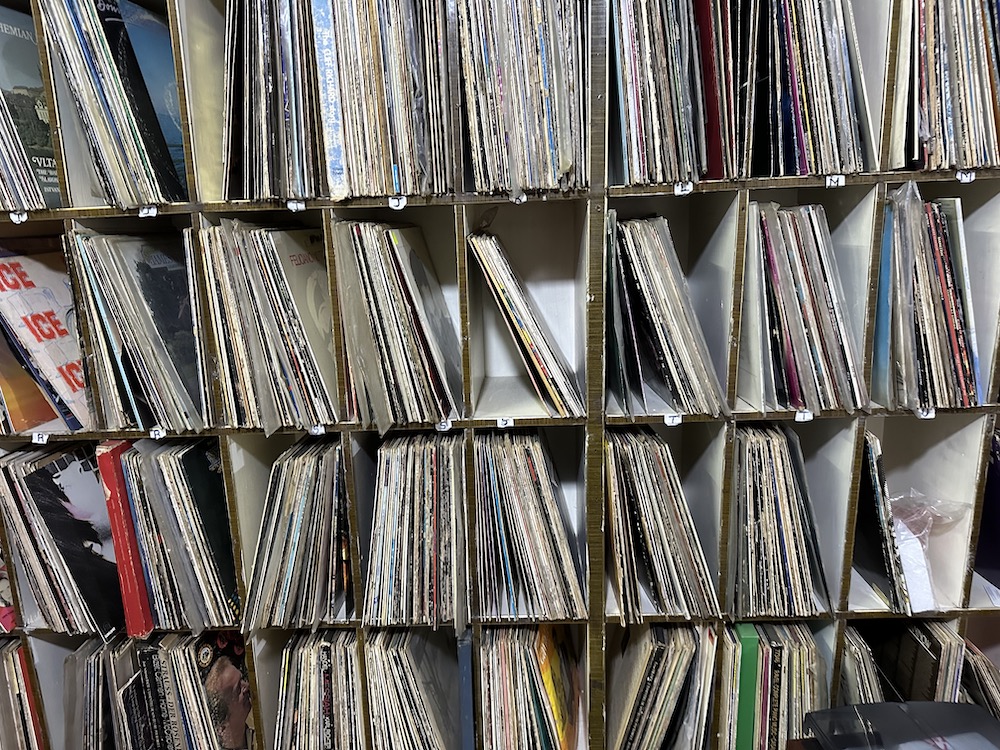

“Some guys, they didn’t have great means, they had learned to play instruments with just one string,” says Karim. “But then they had access to studios. They could record for the first time. And they learned so fast. It was a time of talent and potential.”
Tragedy struck in 1980 as Karim’s dad passed away. Despite being just 18, fresh out of graduating high school, Karim was one of seven siblings who took the reins of the shop on a day-to-day basis – with help from his mother.
“It was a crash course,” he says. “I had to deal with anybody and everybody. Even the artists [working with Melodica] coming in. But it was a lot of fun.”
The family’s links to the music industry date back to the 1950s, when Karim’s grandfather ran a shop in the city of Eldoret in western Kenya after relocating from India as part of a wave of migration encouraged by the British (in 2017, Indians were recognised by the Government of Kenya as the country’s 44th tribe).
Over the decades since, Melodica gathered an immense, eclectic collection. There’s music from Kenya’s various Indigenous groups, such as the Maasai, Kikumba and Luo, curious fusions like African salsa, and important figures like the Tanzanian Mbaraka Mwinsheshe’s jazzy kwela tunes, Congolese rumba legend Franco Luambo, benga artist Daniel Owino Misiani and Kelly Brown aka Kenya’s Michael Jackson.
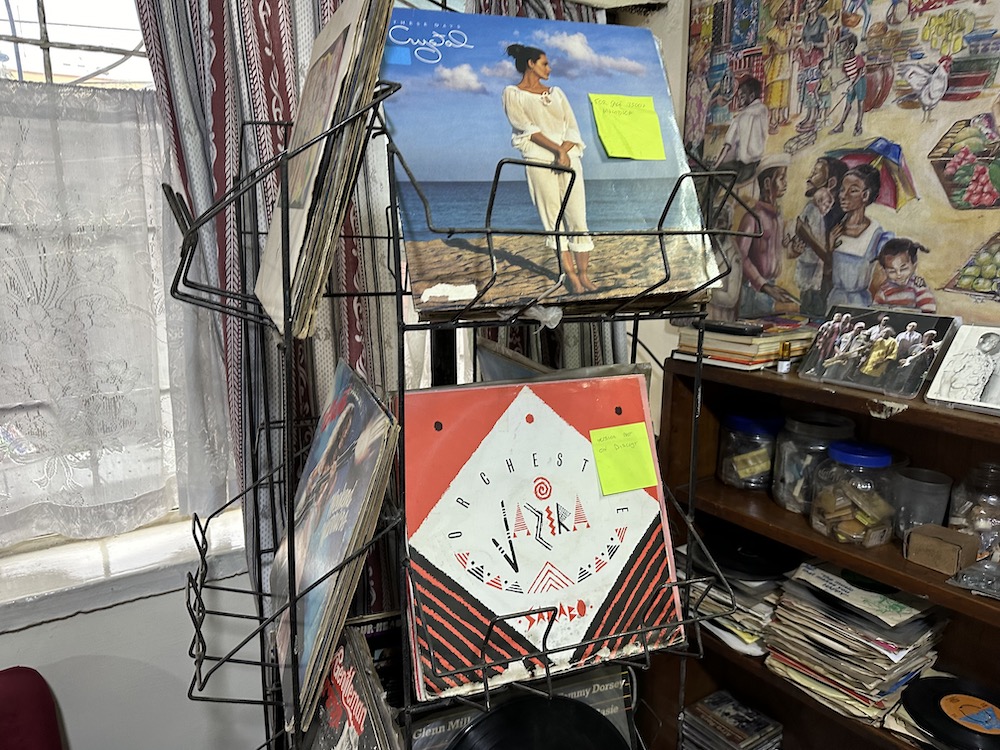

“This place is a reference point for music researchers,” says Karim. “Listening to this music is like listening to cultural heritage. It represents a time in Kenya.”
It is now the only place in the city where you can still buy a new record player. The shop also sells musical instruments like guitars, tumba drums and tambourines.
Melodica always remained a shop that was for the masses. It championed genres like benga made by the Luo people of Kenya’s Western counties, which was for a long time regarded by the country’s elites as the music of the lower classes – a rural and uncultured music genre. Important figures like Adams Nyahone, Joseph Kamaru, Juma Odundo and Ochieng’ Kabaselleh also held sessions and recorded.
To this day, it remains a place for the people. Karim, who lives among his records in the two-floor apartment that he and his family moved to earlier this year, emphasises the need to keep prices low. Most 7-inch records are 1,000 Kenyan shillings (£5.93)
“What’s best for me are low-priced records,” says Karim. “They should be what normal people can buy. Records should not be just for collectors.”
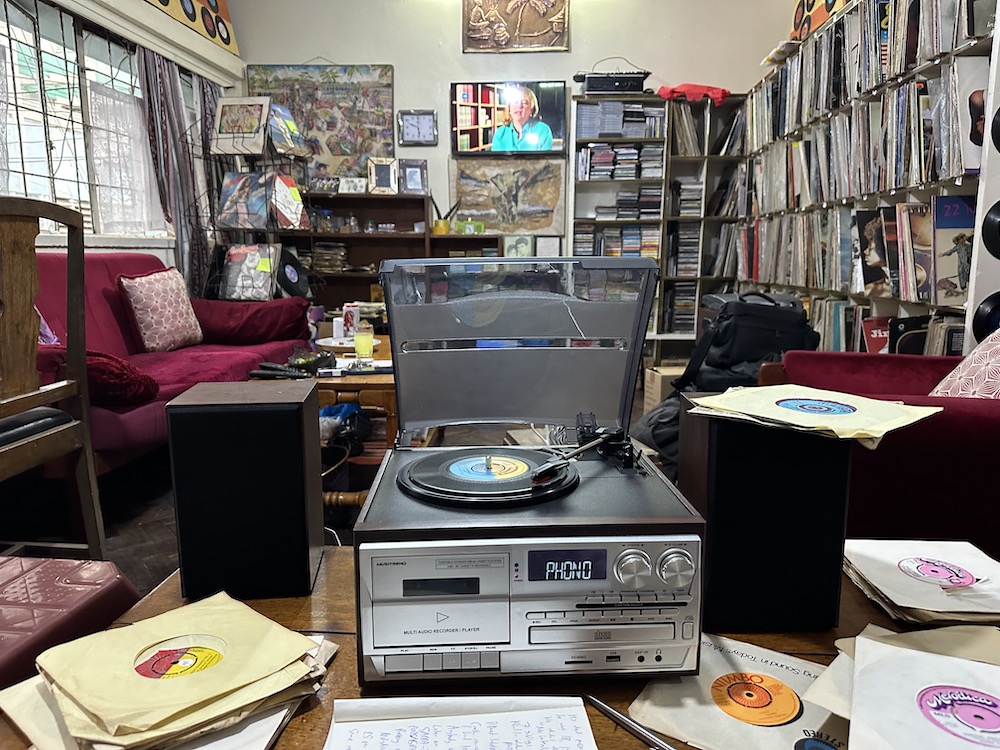

These days, Melodica offers some of its extensive collection for sale online, supplying customers predominantly from Colombia, the USA, the UK, France, Japan and Hong Kong (though Karim’s prized copy of Daudi Kabaka’s benga album Helule is not for sale). However, the experience of visiting the store and crate-digging remains unique, and everyone from old locals to foreign DJs are known to frequent the space.
Don Clemenza, 41, has been a regular customer since he was a kid, having been first brought to the shop by his father. While he’s a fan of Congolese rumba, Clemenza has increasingly been coming to pick up soul and jazz from the 1960s and 1970s.
“I prefer to buy vinyl,” he says. “There’s so much you can discover here that you can’t get anywhere else. And online, with streaming platforms, artists don’t get well paid for their work.”
Even his 11-year-old daughter has got a taste for vinyl. “She even knows how to use the record player herself,” he says. “Vinyl is becoming popular here again.”
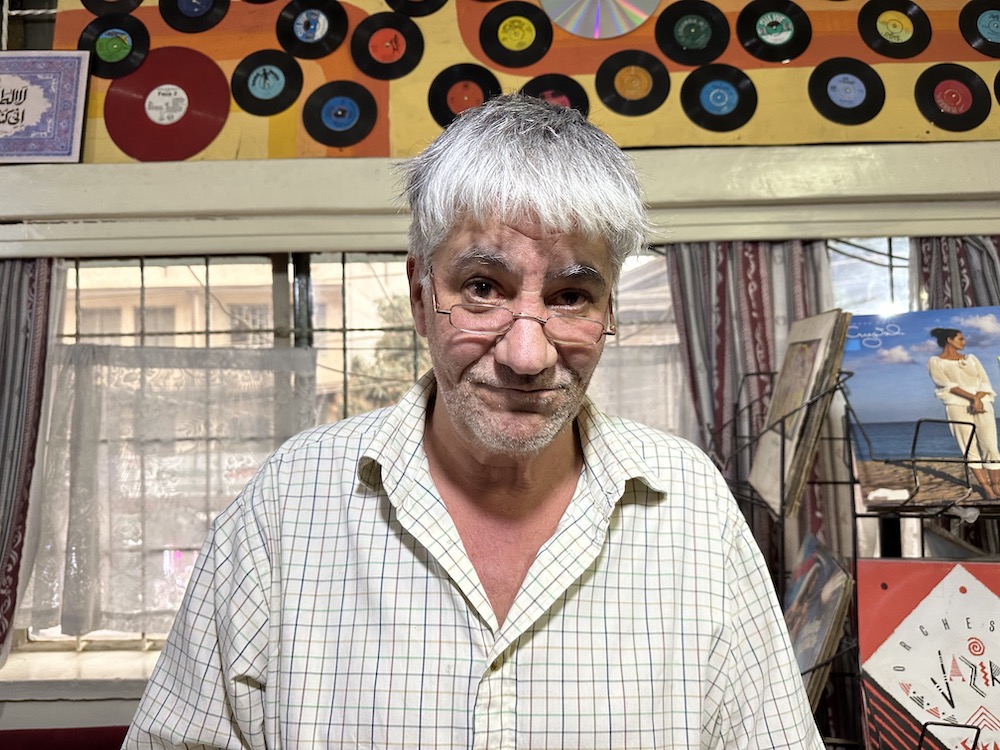

Melodica continues to plough its own path even as the city, society and music tastes change and evolve. There have been some nods to the future, however: Karim has created a vast WhatsApp group for customers to talk about music and exchange tracks, and his son Eshal now helps to make sales and process orders in the shop.
“I couldn’t have had a better life,” says Karim, relaxing back on a sofa surrounded by a sea of vinyl. “Music has given me so much. I want to share it with others.”
Words & photos: Peter Yeung
Read more: Meet Paul Au, Hong Kong’s vinyl hero
